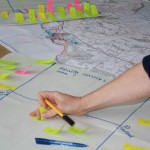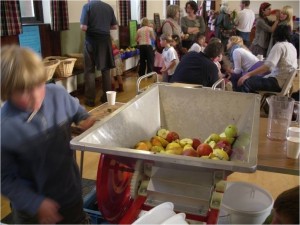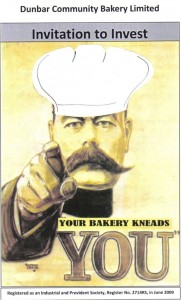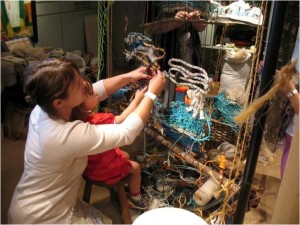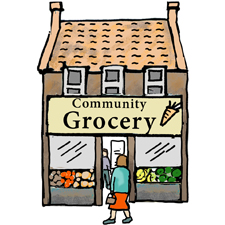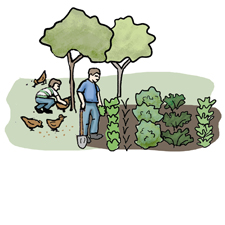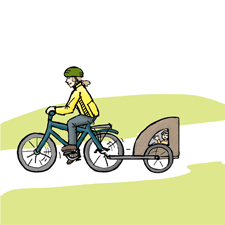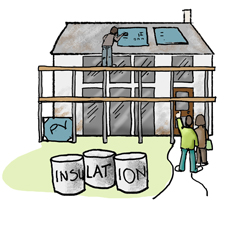Over 1500 people have been involved or consulted in some way during the life of this project. This has included over 600 doorstep interviews by our team of trained facilitators, talks and workshops with a range of community organisations (incl. Community Councils, Probus Club, Womens’ Rural Institute, Headway, Churches etc.), films and discussion evenings, pop-up shops, exhibitions, community festivals such as Gathering-In, Bikefest and Apple Days, stalls at local galas and flower and produce shows, activities with primary and secondary schools…..
The energy audit project and BeGreen drop-in shop have provided a way of engaging across the community while a wide range of practical projects have helped to reach many more people. We have variously initiated, inspired, nurtured and supported a range of local initiatives which are now already working to create a low-carbon, resilient future including: Dunbar Allotments Association, Dunbar Secondary School food growing project, Dunbar Community Bakery, the Crunchy Carrot community buyout group, Carbon Neutral Stenton, ‘OurLocality’ (a local web publishing platform), Dunbar Community Energy Company, the BeGreen energy advice project, a group working to set up regular local produce markets and projects with Dunbar Art’s Trust, Dunbar Community Woodland Group and Dunbar Trades Association. (More information on some of these projects can be accessed on their websites via: OurLocality.) We hosted the first Scottish Food Relocalisation Conference which led to the Declaration of Dunbar and the launch of ‘Nourish’ as a Scottish Local Food Network’. (See conference report here.)
Thanks to extra funding from Community Energy Scotland, we were able to commission a feasibility study into setting up a community owned district heating scheme for a local steading development, fired with woodchip and including an assessment for the potential for a sustainable woodchip supply from Dunbar Community Woodland. A ‘toolkit’ for a first stage assessment of such schemes is now available here.
![Dunbar 2025 [WEBSITE ARCHIVED 2011]](https://ourlocality.org/dunbar2025/files/2011/03/ccfbanner1.png)
